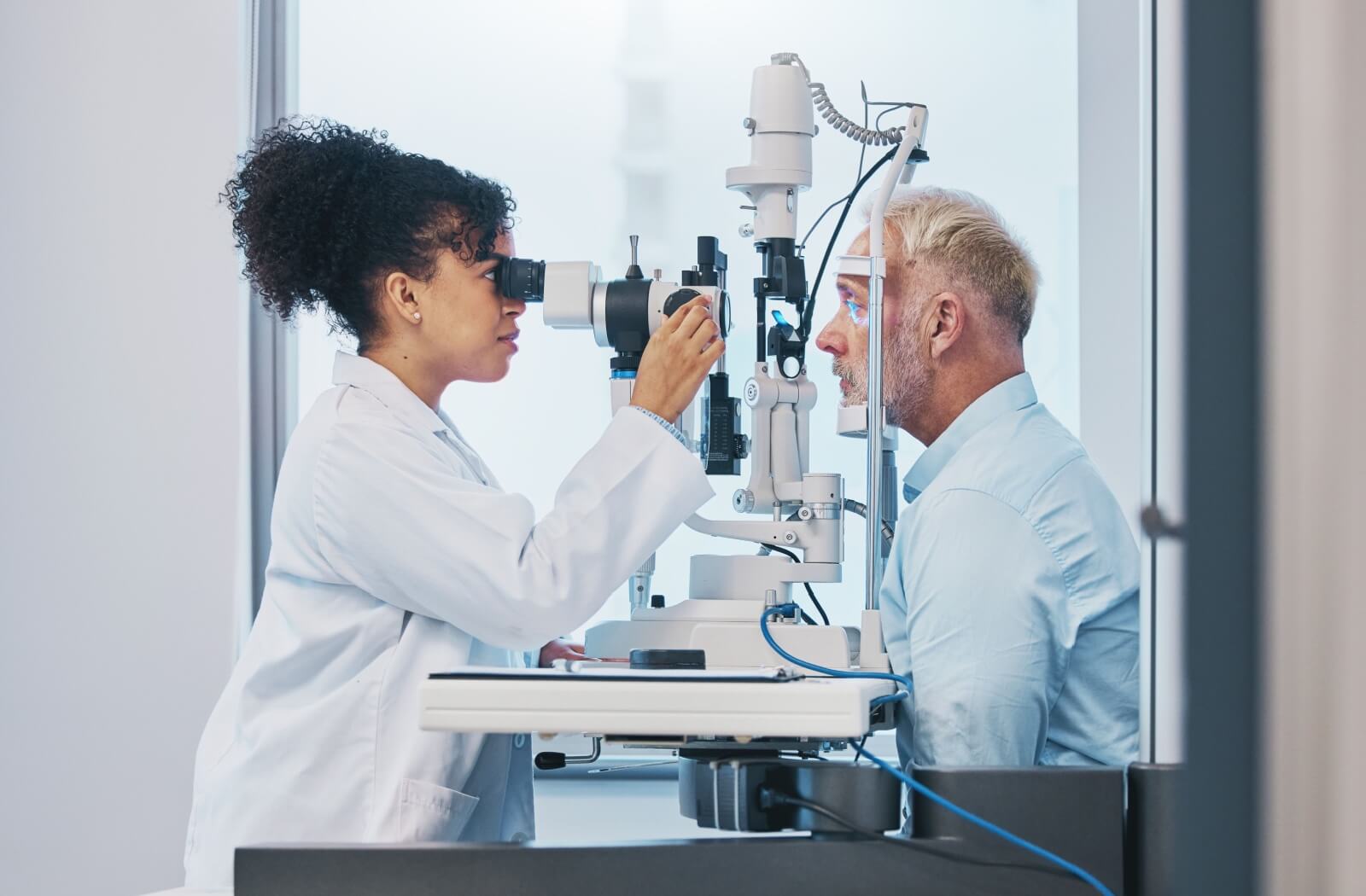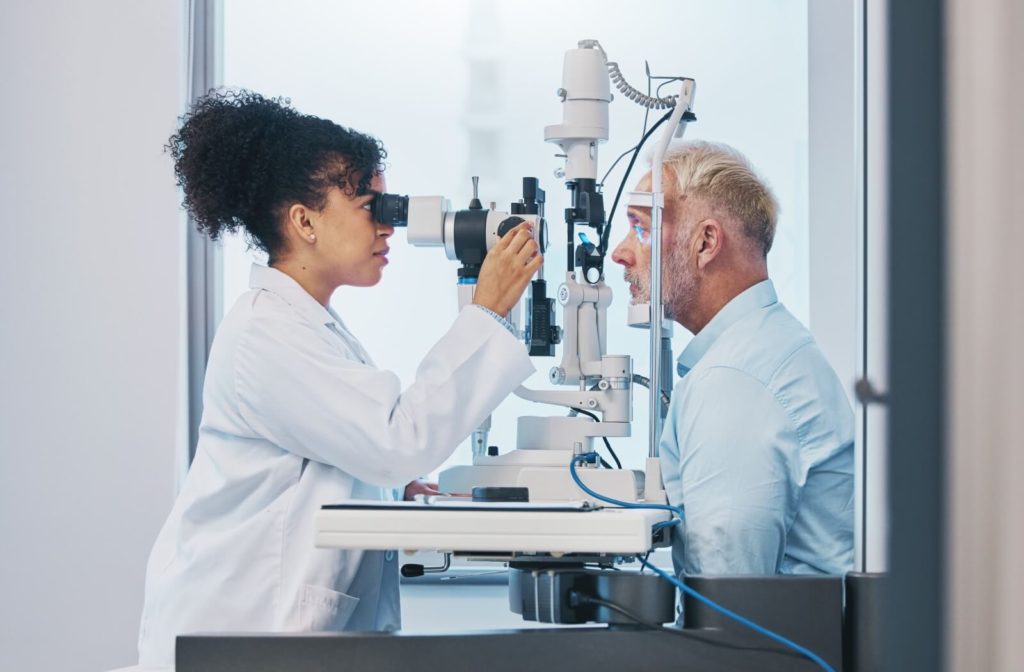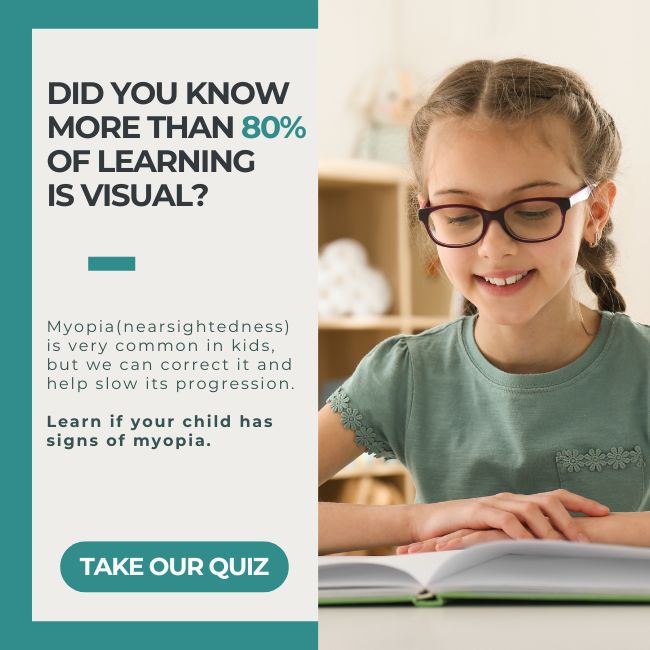Eye exams are commonly perceived as ways to identify changes in vision and potential eye diseases.
The intricate relationship between the brain and the eyes is often overlooked but is important for understanding how certain health conditions can manifest through visual symptoms.
The optic nerve, which transmits visual information from the retina to the brain, is a direct extension of the central nervous system (CNS).
This connection means that any anomalies in the brain, such as a tumor, can potentially be detected through changes in your eyes and vision during an eye exam.
Signs & Symptoms of Brain Tumors
Brain tumors can present a wide range of symptoms, many of which are non-specific and may overlap with other health conditions. However, some symptoms specifically related to visual changes include:
- Persistent headaches, often worse in the morning
- Blurred or double vision
- Sudden loss of vision, especially in one eye
- Changes in peripheral vision
- Eye pain or discomfort
- Swelling of the optic disc (papilledema), which can be observed during an eye exam
These symptoms occur because a growing tumor can exert pressure on the optic nerve or other parts of the brain responsible for vision. Recognizing these signs early is crucial for timely diagnosis and treatment.
Types of Eye Exams That Can Detect Tumors
Various eye exams can help in detecting abnormalities that may indicate a brain tumor. These include:
1. Fundoscopic Exam
A fundoscopic or ophthalmoscopic exam involves looking at the back of the eye, including the retina, optic disc, and blood vessels, using a special instrument called an ophthalmoscope or slit lamp microscope.. During this exam, an eye care professional can detect signs of increased intracranial pressure, such as papilledema, which might indicate the presence of a brain tumor.
2. Visual Field Test
A visual field test measures the entire scope of your vision, including your peripheral (side) vision. Tumors that impact the optic pathways may cause characteristic patterns of vision loss, such as loss of peripheral vision, which can be detected through this test.
3. Optical Coherence Tomography (OCT)
OCT is a non-invasive imaging test that uses light waves to take cross-section pictures of the retina.
It allows for detailed visualization of the retinal layers, helping in the detection of swelling or other changes in the optic nerve that could be associated with a brain tumor.
4. Neuroimaging Studies
While not a part of a routine eye exam, neuroimaging studies such as MRI (Magnetic Resonance Imaging) or CT (Computed Tomography) scans are often recommended if an eye exam reveals signs suggestive of a brain tumor.
These imaging modalities provide comprehensive details about the brain’s structure, helping confirm the diagnosis.
Other Health Issues Detected by Eye Exams
Eye exams are not only vital for detecting brain tumors but also for identifying various other serious health issues. Regular eye check-ups can reveal a lot about your overall health, including:
- Diabetes: Diabetic retinopathy, a condition that affects blood vessels in the retina, can be detected through retinal changes, often before any significant symptoms of diabetes manifest.
- Hypertension: High blood pressure can cause changes in the blood vessels of the retina, such as narrowing or bleeding, which can be spotted during an eye exam. Early detection can lead to better management of hypertension.
- Autoimmune Conditions: Diseases like lupus or multiple sclerosis often have ocular manifestations. For instance, inflammation in the eye can be an early sign of these conditions, allowing for quicker diagnosis and treatment.
- Thyroid Problems: Conditions like Graves’ disease can lead to noticeable changes in eye appearance and function, such as bulging eyes or double vision. Detecting these changes can prompt further testing for thyroid issues.
- Cardiovascular Diseases: Atherosclerosis or cholesterol deposits can be observed in the retinal blood vessels. These observations can indicate a higher risk of cardiovascular diseases, prompting more comprehensive cardiovascular examinations.
Regular eye exams are a window to your overall health, helping to detect and manage various conditions early on.
When to Seek Medical Advice
If you experience persistent or unexplained visual symptoms, it’s crucial to seek medical advice promptly. Symptoms that warrant immediate attention include:
- Sudden vision loss
- Persistent headaches
- Noticeable changes in eye appearance
Regular eye exams are also essential, even if you don’t have symptoms, as they can help catch potential issues early.
Book an Eye Appointment
While eye exams are primarily designed to assess eye health, they can also provide critical clues about underlying health conditions, including brain tumors.
The close anatomical and functional relationship between the brain and the eyes means that changes in vision can be an early indicator of a problem within the brain.
By understanding this connection and keeping up with regular eye exams, you can help ensure that any potential issues are identified and addressed as early as possible.
If you have any concerns about your vision or overall health, don’t hesitate to reach out to Insight Eyecare to book an appointment.







